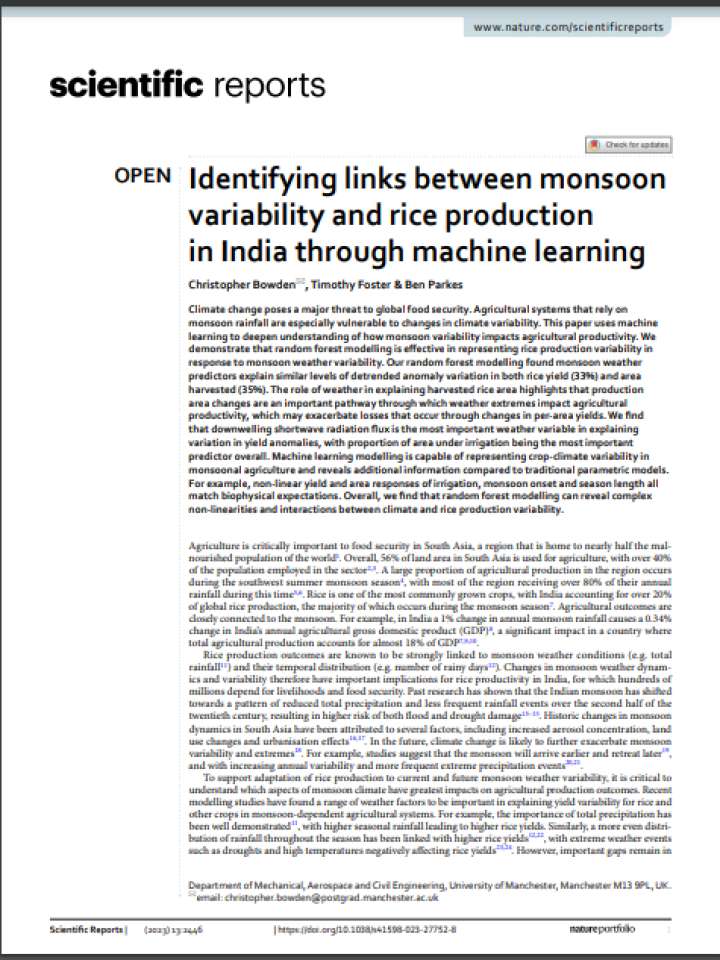Identifying links between monsoon variability and rice production in India through machine learning
This paper uses machine learning to deepen understanding of how monsoon variability impacts agricultural productivity. It demonstrates that random forest modelling is effective in representing rice production variability in response to monsoon weather variability. Climate change poses a major threat to global food security. Agricultural systems that rely on monsoon rainfall are especially vulnerable to changes in climate variability..
The findings for the paper demonstrate the capability of RF machine learning models to capture and explain variability in rice production outcomes in response to monsoon climate signals. Critically, it demonstrates the additional impacts of monsoon weather variability on crop production area, highlighting the importance of considering changes in both per-area crop yields and harvested areas when assessing impacts of weather on agricultural production.
Explore further
